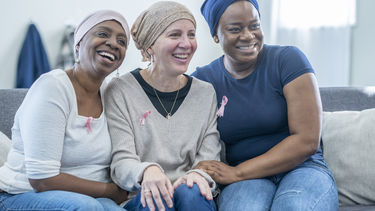Olivia Turner has been awarded the Best Oral Presentation at the International Society of Geriatric Oncology’s Symposium on Primary Breast Cancer in Older Women for her work on how the degree of frailty influences breast cancer treatment decisions and outcomes.
Olivia says
As one of the few non-clinical attendees, the Symposium on Primary Breast Cancer in Older Women was an eye-opening peek into the other side of breast cancer research, highlighting the need for the inclusion of older patients and giving insight into how we can work towards this in the future. The event hosted by the University of Nottingham with the International Society of Geriatric Oncology gave me invaluable insight into the challenges of research in patients, particularly in individuals with comorbidities and geriatric syndromes.
One of the key underlying themes being fed back was that healthcare professionals are keen to implement methods of detecting frailty and markers of poor prognosis in the clinic, particularly to improve patient quality of life after treatment, though current methods are often unfeasible with current time and funding constraints.
My presentation titled 'The degree of frailty impacts breast cancer treatment decisions and outcomes in older women with breast cancer', introduced our secondary analysis of the 'Bridging the Age Gap' trial. We calculated a frailty score in a large prospectively recruited cohort of 3275 women over the age of 70 with primary breast cancer and identified that frail patients are less likely to receive surgery, chemotherapy and radiotherapy than robust patients, but also have poorer non-breast cancer-specific survival and quality of life outcomes than robust patients.
I also directed listeners to my poster which discussed our work on biomarkers of cellular senescence. Cellular senescence is an indicator of frailty in animal models but research is limited in human cohorts, hence we are in the process of investigating the relationship between frailty and tissue biomarkers of senescence in normal breast adipose tissue from the same cohort. We aim that from this we may be able to identify biomarkers of frailty in humans and develop intervention methods to improve outcomes.
The day further reminded me of the impact our research could have on the lives of individuals with frailty, and the change we are making towards healthier lifespans.

